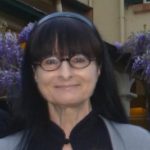The question of what emotions are can be a bit tricky to nail down. It depends on who you ask really. I’ve heard it said that emotions reside in the body and feelings reside in the mind.
But I think we would all agree that there’s a bit more to it than that.
What we know for sure through Bruce Lipton’s work and Candace Pert’s great book “Molecules of Emotion”, is that emotions are not just about our non-physical reality, but that they also create biochemical reactions in our body.
Turning negative emotions into positive emotions, is it possible?
What I personally know for sure is that I’ve had a complex relationship with emotions for most of my life. I know that I need to give you some background here so that you can make sense of this.
I’ll start be telling you that I hit a particularly rocky patch in the road at the end of 2014, when I found myself having to contend with the consequences of being made redundant from a well-paying job that I’d held for over 15 years.
This coincided with the fact that my daughter was going into adolescence, and I was going into menopause at the same time.
To be honest I felt like I was in the middle of a perfect storm with both my own and my daughter’s hormones going crazy, and unemployment stretching out in front of me.
After going through all of the emotions that were triggered by my redundancy, I decided to make use of the ’spare’ time I had on my hands by writing a book about my experience of menopause.
My thinking was that I could put the struggle I’d been having to good use by writing about the improvements I’d achieved by focusing on the fundamentals of diet, exercise, stress management, and mindset.
The thing I didn’t realise at the time was that I was going to have to build a business around my book to keep the family’s finances afloat.
The long and the short of it is that after unsuccessfully applying for over 30 jobs that I was eminently qualified for, I decided to bite the bullet and save my energy for more fruitful endeavours.
In others words, I processed the feelings of rejection and loss completely and quickly, and then got on with my life.
One of the unexpected consequences of this was that I experienced two incredibly poignant pieces of healing, as a result of writing my story down for the book that became “Thrive in Midlife”.
One of these cathartic experiences came about as I was considering the options I had for handling menopause in 2014, compared with the options my mother had when she was in the same position in the early 1980s.
The stark reality here was that in mum’s day, synthetic hormones were prescribed without a second thought, and sadly she was one of the many women who paid the price in terms of being diagnosed with breast cancer in her late 60s.
At the time, I was surprised to feel a sense of gratitude to Tamoxifen which is still the drug of choice for treating breast cancer. The gratitude was due to the fact that it bought mum some extra time, and that gave her a chance to get to know my daughter Lucy.
It also gave Lucy a chance to get to know her grandmother. I only wish it wasn’t such a short window of opportunity though, because Lucy was only one when mum passed away.
I share this part of my story with you, because I felt my heart split open when I wrote about mum’s brief relationship with Lucy in my book.
This was a huge deal for me because there were a couple of traumas around my entry into the world that fundamentally shaped the way I experienced my emotions right up to the time when I stumbled on tools like Neuro Linguistic Programming (NLP).
NLP helped me to work through some of the baggage I’d accumulated over time. I was aware of one of these traumas, but the other one came as a complete shock to me.
The one that I was aware of had to do with the fact that mum almost died from a blood clot that travelled to her lung just after giving birth to me.
Meanwhile, the bigger piece of the puzzle relates to the fact that I was the surviving twin in a case of Vanishing Twin Syndrome. This didn’t come to light until I was 45 and training to be a NLP Master Practitioner.
In fact, my awareness around the fact that I’d internalised the trauma of losing my twin in utero came about when I was helping the demonstrate Time Line Therapy.
Time Line Therapy is one of the fundamental processes in NLP. Its power lies in the fact that it helps people to access material that’s stored deep in the unconscious part of their mind.
That’s certainly where the trauma around my lost twin was sitting before Time Line Therapy made it possible for me to access it.
As the name suggests, Vanishing Twin Syndrome comes about when a twin disappears in the uterus during pregnancy. Most mothers don’t even know this has happened because the fetal tissue is either absorbed by the other twin, or absorbed into the placenta.
So if this happens before an ultrasound has been done, there’s no evidence whatsoever that the twin ever existed.
What this means is that I could have gone through my whole life without finding out what caused the gnawing feeling of emptiness that I’d been harbouring in my body for my whole life.
One of the consequences of this is that before I was even born, I learnt how to shut my feelings off to avoid the pain of abandonment that I felt in the first instance when my twin left me, and then again when my mother was absent in the early weeks of my life because she was teetering on the brink of death herself.
The problem with shutting our feelings off is that you can’t just block the bad ones out. It’s an all or nothing proposition.
So our ability to feel emotions like joy, love, and bliss for example, is compromised when we numb ourselves in order to avoid feeling emotional pain.
Looking back on all of this now, I feel sad when I think about spending so much of my life in an emotionally numb state. I also feel very sad about the fact that mum and I never really got around to bonding while she was alive.
More important though is the fact that I’m truly grateful for finally making up for that in the process of writing my book some 10 years after mum passed away.
Among other things, what this experience of reconnecting did was loosen the grip of the toxic relationship with food that I’d developed as a numbing strategy very early on in my life.
This was a fantastic result in and of itself, but even better still was the fact that the universe stepped up to the mark at the end of 2014 by opening up a spot for me in clinical trials that were being run by Sydney University to gauge the efficacy of EMDR in the treatment of binge eating disorder.
Some would say that the fact that this happened two days after the cathartic experience I had in relation to posthumously bonding with my mother was a coincidence, but I think not.
I’m now just about to publish my second book called “Weight Loss in Midlife”, and I run book writing workshops for other people who want to tease out their own stories.
I’m truly grateful that I’ve finally come to the point where I love myself and my life. That’s no mean feat given where I’ve come from.
You can find much more information on living a holistic lifestyle in these free magazines and on our YouTube channel.
 Jane Turner – Woman’s Health Expert
Jane Turner – Woman’s Health Expert






